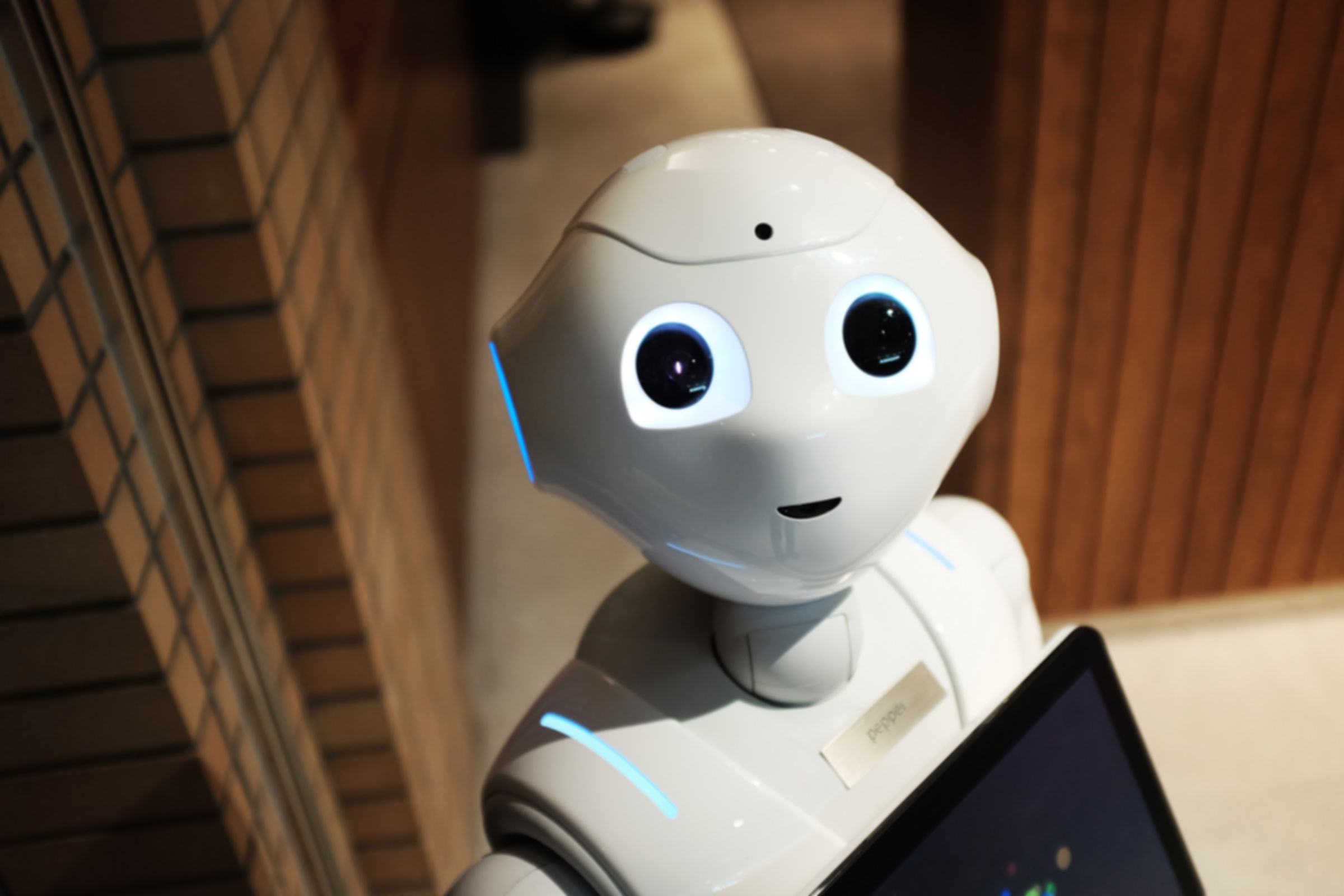Artificial intelligence (AI) is one of the most influential and disruptive technologies of our time. It is transforming every industry, every business, and every function. But what about the people who work in these organizations? How is AI affecting their experience as employees?

In this article, Aiifi will explore how AI transforms employee experience in four key areas: recruitment, training, evaluation, and support. We will discuss the benefits and challenges of using AI for the employee experience and provide tips and best practices for employees and employers.
Whether you are an employee looking to leverage AI for your career growth, or an employer looking to create a more engaging and productive workplace, this article is for you.
What do we mean when we say AI and Employee Experience?
Before diving into how AI is transforming the employee experience, let's first define what we mean by AI and employee experience.
AI is a broad term that refers to the ability of machines to perform tasks that typically require human intelligence, such as reasoning, learning, decision-making, and natural language processing. AI can be applied to various domains and functions, such as healthcare, education, finance, marketing, and human resources.
Employee experience, on the other hand, is a term that refers to the sum of all interactions that an employee has with their employer throughout their employment journey. Employee experience includes everything from recruitment to onboarding and training, performance evaluation and feedback, career development, and support. Employee experience influences employee engagement, satisfaction, retention, and productivity.

Combining AI and Employee Experience
AI and employee experience are essential for any organization's success in the digital age. AI can help improve the employee experience by automating mundane and repetitive tasks, providing personalized and adaptive learning opportunities, delivering timely and actionable feedback, and offering intelligent and proactive support. These benefits can lead to higher employee engagement, satisfaction, retention, and productivity, resulting in better business outcomes, such as increased revenue, customer loyalty, and innovation.
However, AI can pose challenges and risks to the employee experience, such as ethical dilemmas, privacy concerns, skill gaps, and job displacement. These challenges require careful consideration and management by employees and employers, as well as clear communication and collaboration between them.
In the following sections, we will explore how AI transforms the employee experience in four key areas: recruitment, training, evaluation, and support. We will provide examples of how leading organizations use AI in these areas and showcase some of the AI tools and software in use today. We will conclude with some tips and best practices Aiifi recommends for employees and employers to make the most of AI for the employee experience.
1 - Recruitment
Recruitment is the first and most crucial touchpoint between employees and employers. It sets the tone for the rest of the employee experience and can make or break the employer's brand.
However, recruitment is a time-consuming and costly process, especially when dealing with large volumes of applicants and high turnover rates. AI can help streamline and optimize the recruitment process, saving both parties time, money, and stress.
The following 3 AI-powered solutions are great examples of how AI is being intelligently used in recruitment by leading organizations:
- Paradox: Paradox provides an AI-powered assistant for recruiters and job seekers. The assistant, Olivia, engages with candidates on web, mobile, and social channels to learn about their skills, expertise, and relevant job experience. Olivia then presents candidates with next steps, schedules interviews, and answers company- or process-related questions using natural language technology.
- Hirevue: Hirevue enables companies to deliver a more engaging candidate experience with conversational AI and automation capabilities. A recruiting assistant can hold text-based conversations with individuals, guiding them to the jobs that best fit their skill sets. In addition, Hirevue's AI recruiting assistant sends follow-up messages and updates candidate statuses to speed up the hiring process.
- iCIMS: iCIMS offers a talent acquisition platform that leverages AI and ML to help recruiters find and attract the best talent. The platform uses AI to analyze resumes, match candidates to jobs, rank applicants based on fit, and provide insights on talent pools and market trends.

2 - Training
Training is another critical aspect of the employee experience that AI has influenced significantly over the last two years. Training helps employees acquire new skills and knowledge and improve their existing ones.
As firms of all sizes will be acutely aware, traditional training methods can be costly, time-consuming, and ineffective, especially when dealing with diverse and distributed workforces in many companies post-pandemic. AI can provide personalized and adaptive learning experiences that cater to the needs and preferences of each employee.
Here are some examples of how AI is being used in training by leading organizations:
- Docebo: Docebo is an AI-powered enterprise-level LMS used to educate and train employees across various industries. It offers AI-based personalized learning paths, content recommendations, and advanced analytics to improve employee training experiences.
- Apty: Apty is a digital adoption platform that provides in-app guidance, interactive flows, and personalized learning paths for employees. Companies use Apty to create custom training programs for their software and monitor employee progress as they proceed through these customized programs, making it a valuable AI-driven training tool.
- ProProfs: ProProfs is an online training software that offers course creation, assignment, and progress monitoring tools. They provide professional templates with drag-and-drop features that you can easily modify to your training needs. With AI-enabled features like gamification and personalized learning paths, ProProfs can enhance employee training experiences and improve skill development.
3 - Evaluation
Evaluation helps employees receive feedback and recognition and measure and improve their performance.
The limitations of traditional evaluation methods are that they can be subjective, biased, and inconsistent, especially when dealing with qualitative and behavioral aspects of work. AI can provide more transparent, accurate, and fair evaluation methods to enhance employee motivation and development.
Here are some examples of how AI is being used in evaluation by some leading organizations:
- 15Five: 15Five is a continuous performance management software offering employee performance reviews and goal-tracking features. It helps managers and HR professionals to assess employee performance, gather feedback, and identify areas for growth and improvement. The AI-driven analytics identify trends and provide insights to optimize employee engagement and productivity that would not have been possible pre-AI.
- Reflektive: Reflektive is a performance management platform that streamlines employee evaluations, goal setting, and real-time feedback. With a focus on continuous improvement, this AI-powered tool offers customizable templates for performance reviews, one-on-one meetings, and goal tracking. The platform's analytics help managers understand employee performance, engagement, and growth opportunities.
- Lattice: Lattice is an employee performance and engagement management platform that facilitates goal setting, real-time feedback, and performance reviews. AI-driven analytics provide insights into employee performance, helping managers make data-driven decisions for employee development. Lattice also offers features like peer recognition, which fosters a positive work culture.

4 - Support
Support is the final key aspect of the employee experience influenced by AI, which we will discuss in this article. Support helps employees access information and resources and receive assistance and guidance.
However, traditional support methods can be slow, inefficient, and frustrating, especially when dealing with complex and urgent issues. AI can help provide intelligent and proactive support methods to improve employee productivity, collaboration, and well-being.
Here are some examples of how AI is being used in support by some leading organizations:
- Capacity: Capacity is an AI-powered knowledge management platform that provides employees instant access to critical information. It acts as a central repository for company knowledge. It makes it easy for employees to find answers to their questions, reducing the time spent searching for information. Capacity was built from the ground up on AI, with machine learning and natural language processing powering their conversational AI helpdesk.
- Talla: Talla is an AI-powered intelligent assistant that automates routine tasks, answers employees' questions instantly, and streamlines workflows. It integrates with various communication platforms, including Slack and Microsoft Teams, making it easy for employees to get support without leaving their preferred tools.
- Lucy: Lucy is an AI-powered knowledge platform that searches and synthesizes data from various internal and external sources and provides concise answers to employees' questions. Lucy uses natural language generation to create summaries of millions of search results. It can join the conversation on communication channels such as Teams or Slack. Lucy eliminates the need for uploading data and ensures your employees always have access to the most up-to-date information.
Conclusion: Embracing the AI-Powered Employee Experience
As we have seen, AI will revolutionize the employee experience in recruitment, training, evaluation, and support. By leveraging AI, companies can create more efficient and effective processes, tailor experiences to individual employees, and foster a more engaged and productive workforce.
However, employees and employers must approach the AI employee experience with a balanced perspective, proactively addressing the challenges and concerns.
To make the most of the AI employee experience, Aiifi recommends the following:

Employers
1. Stay informed about the latest AI developments and applications in their industry.
2. Invest in AI tools and platforms that align with their business objectives and employee experience goals.
3. Work closely with their HR, IT, and data teams to ensure AI solutions are implemented ethically and responsibly.
4. Communicate openly and honestly with employees about the benefits and challenges of AI, and provide opportunities for feedback and collaboration.
5. Offer training and development programs to help employees upskill and adapt to the changing workplace landscape.
Employees
1. Stay curious and open-minded about the potential of AI to enhance their work and career.
2. Take advantage of AI-powered tools and resources to improve their skills and performance.
3. Engage in ongoing learning and development around AI to stay relevant and competitive in the job market.
4. Be proactive in addressing any concerns or questions about AI and its impact on their role or workplace.
5. Collaborate with their employer and colleagues to create an inclusive and empowering AI-driven work environment.
The AI employee experience is not a futuristic concept but rather a reality already unfolding in many organizations worldwide today. It offers significant benefits, opportunities, challenges, and risks for both employees and employers.
Aiifi expects more recruitment, training, and HR software to integrate AI capabilities into its offering throughout 2023 and beyond. Those who do not will get left behind in the marketplace as employers demand the best functionality in their tools.
By understanding and embracing the AI employee experience, we can harness its power to create more engaging, fulfilling, and productive workplaces and ultimately drive better business results.
The future of work is here, and AI plays a pivotal role in shaping it!



